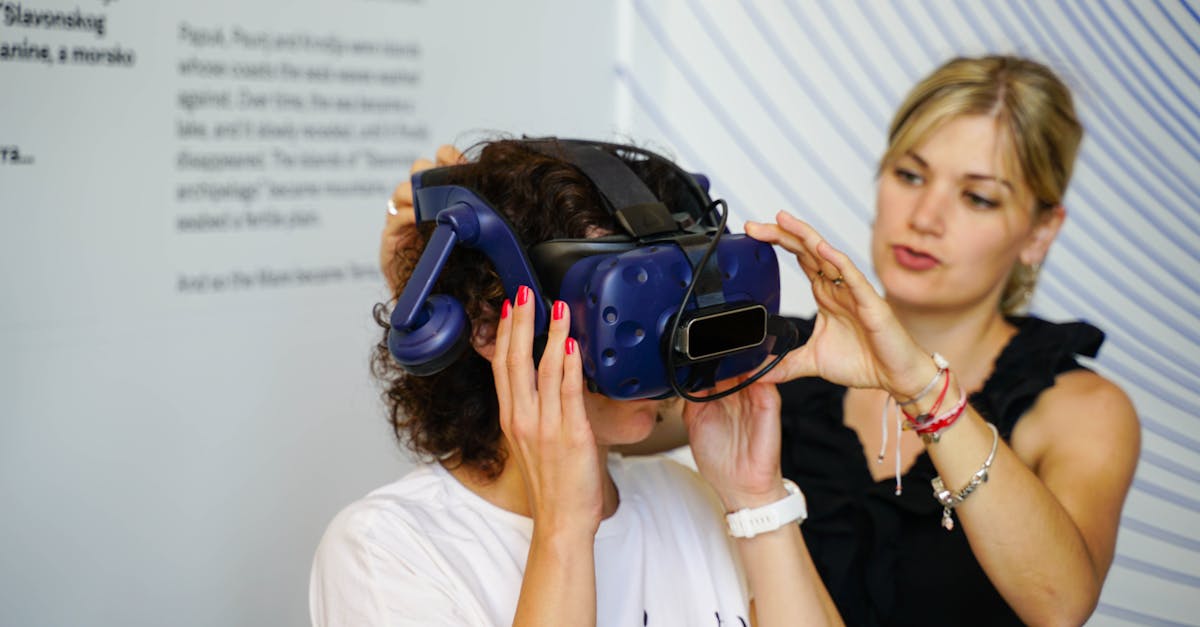
Introduction to Virtual Reality in Gaming
Since the inception of virtual reality (VR), the gaming industry has been at the forefront, leveraging the technology to transform player experiences. Virtual reality creates an immersive, three-dimensional environment that allows gamers to interact with digital content in real-time. This groundbreaking technology has redefined what it means to be "inside" a game, offering an experience that is often described as thrilling and unparalleled. While traditional gaming relies on screens, VR is breaking the mold by offering true immersion. As VR technology continues to evolve, players worldwide are eager to explore its vast potential. What makes VR truly unique is its ability to transport gamers into worlds where the only limit is their imagination.
The Evolution of Virtual Reality Gaming
The journey of virtual reality in gaming began long before it became a commercial reality. Early prototypes, starting from the 1960s, laid the groundwork for future advancements. However, it took decades for the technology to become accessible and affordable to a broader audience. Modern VR gaming became feasible thanks to advancements in computing power, graphics technology, and innovative software. Companies like Oculus, HTC, and Sony have been instrumental in bringing VR to the mainstream, offering headsets that transform ordinary living rooms into immersive gaming arenas. Today, VR games span multiple genres, from intense first-person shooters to serene exploration titles. The progress from pixelated graphics to lifelike environments marks an extraordinary technological leap.
Transformative Player Experience
One of the most significant attributes of VR gaming is its ability to create profound player experiences that traditional games can't match. VR games provide unparalleled interactivity, enabling players to look around, reach out, and engage with the game world as if truly present. This deep immersion enhances emotional responses, creating intense feelings of excitement, fear, or wonder. Games like "Beat Saber" and "Half-Life: Alyx" showcase how VR transforms familiar genres, making the player an active participant rather than just an observer. Additionally, the tactile feedback from VR controllers enhances realism, tricking the brain into believing the virtual world's physicality.
Challenges on the Road to VR Gaming
Despite its many advantages, VR gaming still faces several hurdles. The cost of high-quality VR setups can be prohibitive, making it inaccessible to times larger audiences. Advanced appetite requires substantial processing power and graphics capabilities, demanding top-tier hardware. Additionally, motion sickness is a common issue, caused by a dissonance of sensorimotor signals within the brain, which deters some players from fully enjoying the experience. The limited library of VR-exclusive titles is another concern for potential buyers, as it takes significant resources and creativity to develop compelling VR content. Developers and hardware manufacturers alike must continually innovate to overcome these obstacles and make VR gaming accessible to everyone.
VR's Role in Social Gaming
Far from being an isolated experience, VR is reshaping social gaming landscapes, offering new ways to connect with others. Multiplayer VR games allow users to meet in shared virtual spaces, interacting with friends or strangers worldwide. Games like "VRChat" and "Rec Room" blend social interaction with gaming, creating vibrant communities and virtual friendships. These environments provide players with unique opportunities to express themselves, whether through avatars, digital events, or shared experiences. This social aspect of VR gaming highlights its potential as a platform for both entertainment and connection. By fostering deeper emotional engagements, VR has the power to make gaming a more inclusive and diverse world.
The Impact of VR on Various Game Genres
Virtual reality's impact extends across various gaming genres, enhancing them in unexpected ways. In the world of horror games, VR is kcreating particularly intense and spine-chilling experiences. Games like "Resident Evil 7" elevate fear to new heights, enveloping players in an environment that feels all too real. In contrast, adventure games benefit from VR by immersing players in breathtaking landscapes ready for exploration. Educational games are also leveraging VR’s sensory engagement to provide interactive learning experiences. Moreover, VR has revived interest in rhythm games, as players harmoniously move through music-infused environments. VR's ability to adapt to diverse genres showcases its versatility and broad appeal.
VR Development Innovations and Technologies
With technology fast evolving, virtual reality continues to push the boundaries in gaming. Advances in haptic feedback and eye-tracking technology offer players an enriched sensory experience, creating a more natural interaction with virtual spaces. Developers are incorporating artificial intelligence into VR environments, crafting worlds that intelligently respond to player actions, adding depth and complexity to gameplay. Moreover, innovations in wireless VR technology eliminate the constraints of cables, allowing for greater freedom and mobility within games. As technology progresses, virtual reality is likely to become even more integrated into gaming experiences, presenting gamers with endless possibilities to explore.
The Future of Virtual Reality Gaming
The future of virtual reality gaming looks promising with endless potential to cultivate new pathways in entertainment. Predictions for the industry include the convergence of augmented reality (AR) with VR, creating a hybrid reality that will blend digital and real-world experiences. Gamers can anticipate more sophisticated VR systems, with advances in both hardware and software pushing the limits of what can be virtualized. As cloud gaming services grow, VR devices with less compute dependency are conceivable, broadening accessibility. Developers are betting on the rise of expansive virtual worlds, where large communities can interact seamlessly, erasing the boundaries between the player and the game universe.
The Influence of VR Beyond Gaming
Beyond pure entertainment, VR is influencing industries such as healthcare, education, and training due to its immersive capabilities. VR simulations offer medical professionals a risk-free environment to practice procedures, while schools use VR to provide interactive learning experiences for students. For businesses, VR training programs enhance employee learning, delivering real-time feedback in controlled scenarios. Real estate professionals use VR to offer potential buyers immersive previews of properties. This cross-industry adoption demonstrates VR's vast potential, suggesting the technology can extend way beyond gaming, bringing innovations to multiple fields.
Conclusion: The Immersive Future Awaits
Virtual reality in gaming is a fast-evolving field poised to change the landscape of digital entertainment. Although it faces challenges like accessibility and cost, advancements continue unfettered. Embracing both social and technical platforms, VR bridges the gap between reality and fantasy, transforming how we perceive gaming. With continued innovation, VR is likely to become an integral part of the gaming world. As virtual reality technology progresses, gamers and developers alike have much to anticipate as they look forward to a future where anyone can step inside their favorite games and explore uncharted territory.